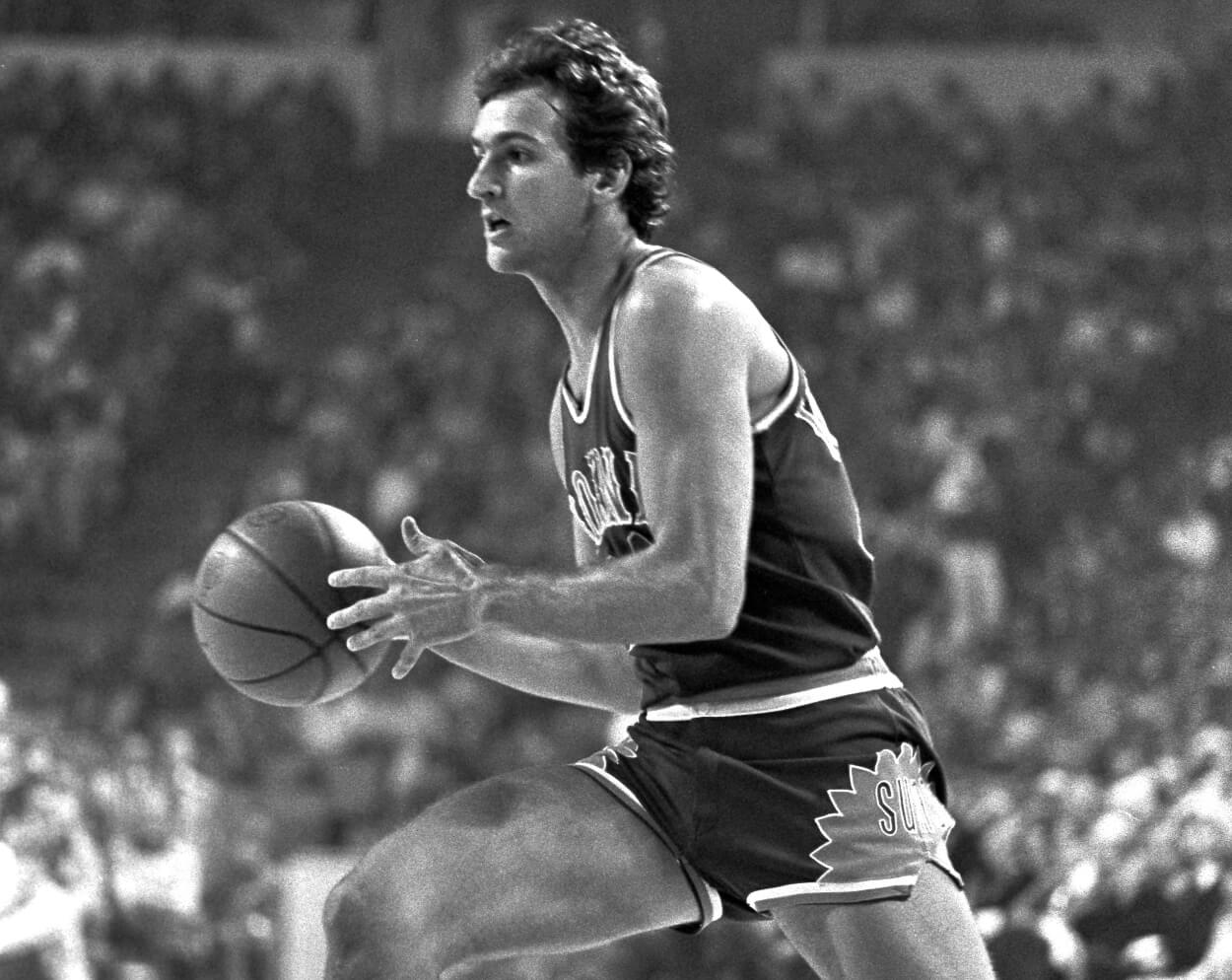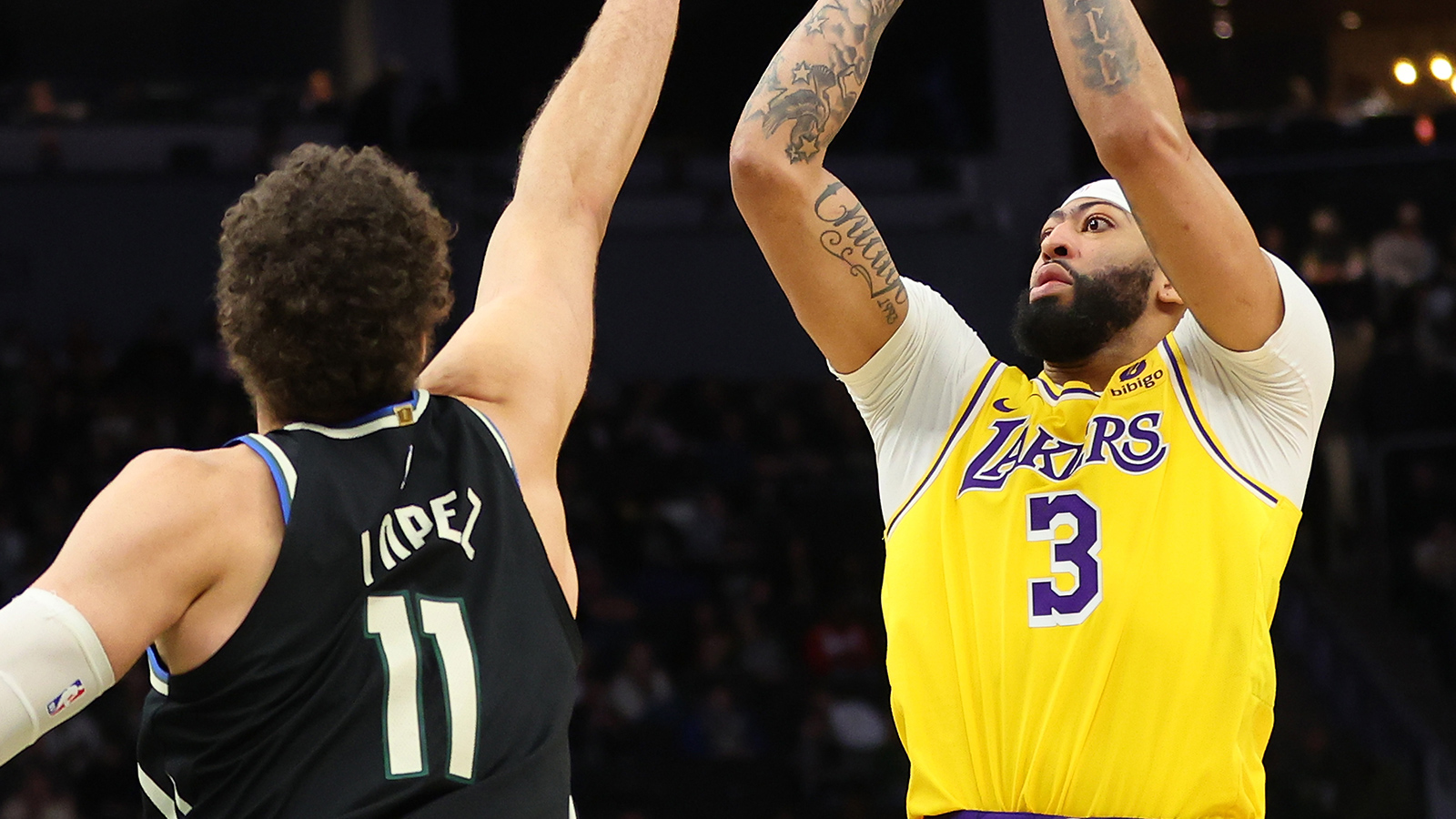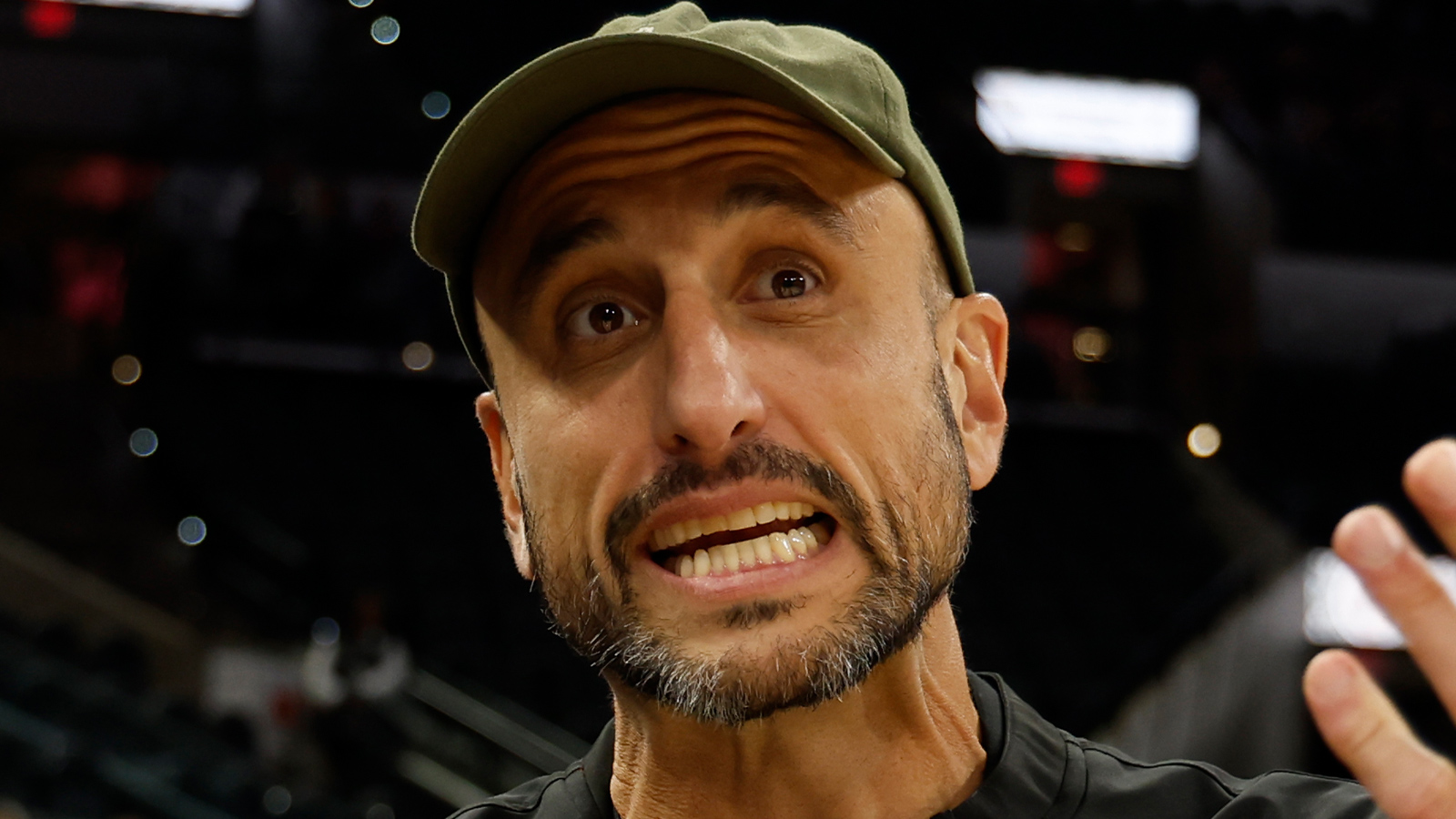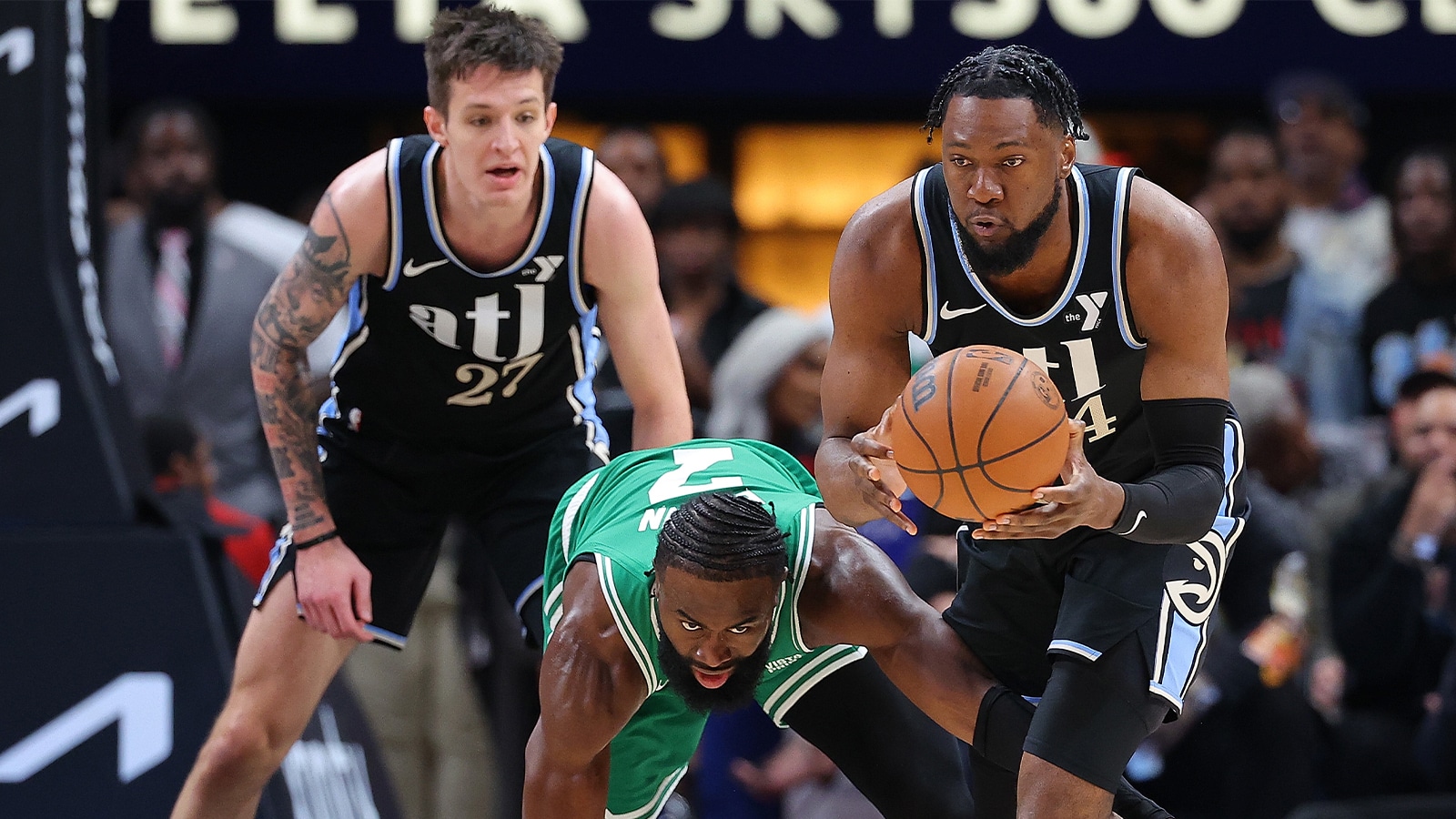
The ‘Greatest Game Ever Played’ Had Several Spectacular Moments, but Paul Westphal’s Is the Most Underrated
Game 5 of the 1976 NBA Finals between the Boston Celtics and Phoenix Suns is often referred to as the “Greatest Game Ever Played.” It was a triple-overtime thriller, with thriller being an understatement. The Celtics pulled out an improbable victory as seldom-used guard Glenn McDonald scored six of his eight points in the final 1:35 of Boston’s 128-126 victory.
While McDonald was an unsung hero, Boston’s John Havlicek and Phoenix’s Garfield Heart had two of the biggest plays of the game. Phoenix star Paul Westphal, who had played the previous three years with the Celtics, finished with 25 points but authored the most underrated play of the game.
The ‘Greatest Game Ever Played’ had everything
Glenn McDonald never thought he’d be in the game, never mind one of the heroes in Boston’s Game 5 win in the 1976 NBA Finals. He was seated at the end of the bench, but when forward Paul Silas became the fourth Boston player to foul out, head coach Tom Heinsohn turned to McDonald, a lightning-quick guard, instead of 6-foot-8 Steve Kuberski.
“When Paul fouled out, I didn’t think I was going in,” McDonald told Sportscasting in April 2022. “I looked at Steve and said, ‘Paul fouled out. Get ready.’”
With the game in the third overtime, Heinsohn wanted fresh legs that could run up and down the court against a tired Suns team.
“He looked at me and said, ‘Run ’em Mac. Run ’em,’” McDonald said of Heinsohn. “I was extremely fast, and I love to get out on the fast break. I played a little at the end of the first half, but after halftime, I didn’t touch the floor.”
The game got to the third overtime because Heard knocked down a buzzer-beater jump shot at the end of the second overtime. The game got to a second overtime because referees didn’t see Silas call for a timeout with three seconds remaining and the game tied at 101 apiece. The Celtics didn’t have any timeouts left, so had the officials given Silas his timeout, he would’ve been slapped with a technical foul, and the Suns would’ve been awarded a free throw.
“I tried to call one, and Richie Powers didn’t see me or didn’t want to see me,” Silas said in 2001, per SB Nation. “He didn’t acknowledge it. I know they feel if he had, it would have been a different ending. Bottom line is that he didn’t, and we got another ring.”
Lost in the game was Westphal’s heads-up play in the second overtime
The Celtics drafted Westphal with the 10th pick in the 1972 NBA Draft. He played his first three NBA seasons in Boston before being traded to the Suns before the 1975-76 season. In his first year with the Suns, he met the Celtics for an NBA championship.
With 15 seconds left in the second overtime, Westphal stole the ball in Boston’s backcourt. The turnover led to a basket that gave Phoenix a 110-109 lead with five seconds left. That wasn’t even Westphal’s biggest play of the overtime.
Boston had the ball at halfcourt. Havlicek took the ball and dribbled three times before leaning in and banking home what appeared to be the game-winning basket. Players and fans celebrated on the court, but the referees ruled there was one second on the clock.
Unlike Silas, Westphal knew his team was out of timeouts, but he alertly called one purposely. Back then, the team taking a technical free throw didn’t automatically take possession after the foul shot. The Celtics made the free throw to take a two-point lead, but the Suns took possession at midcourt with one second left.
Heard took the inbounds pass, and his catch-and-shoot from the top of the key went in, sending the game into a third OT.
Although the Suns lost the game and eventually lost the series in six games, Westphal’s heads-up play gave Phoenix life. It’s a play that won’t show up in the box score, but it’s one of the most underrated plays in NBA history.



